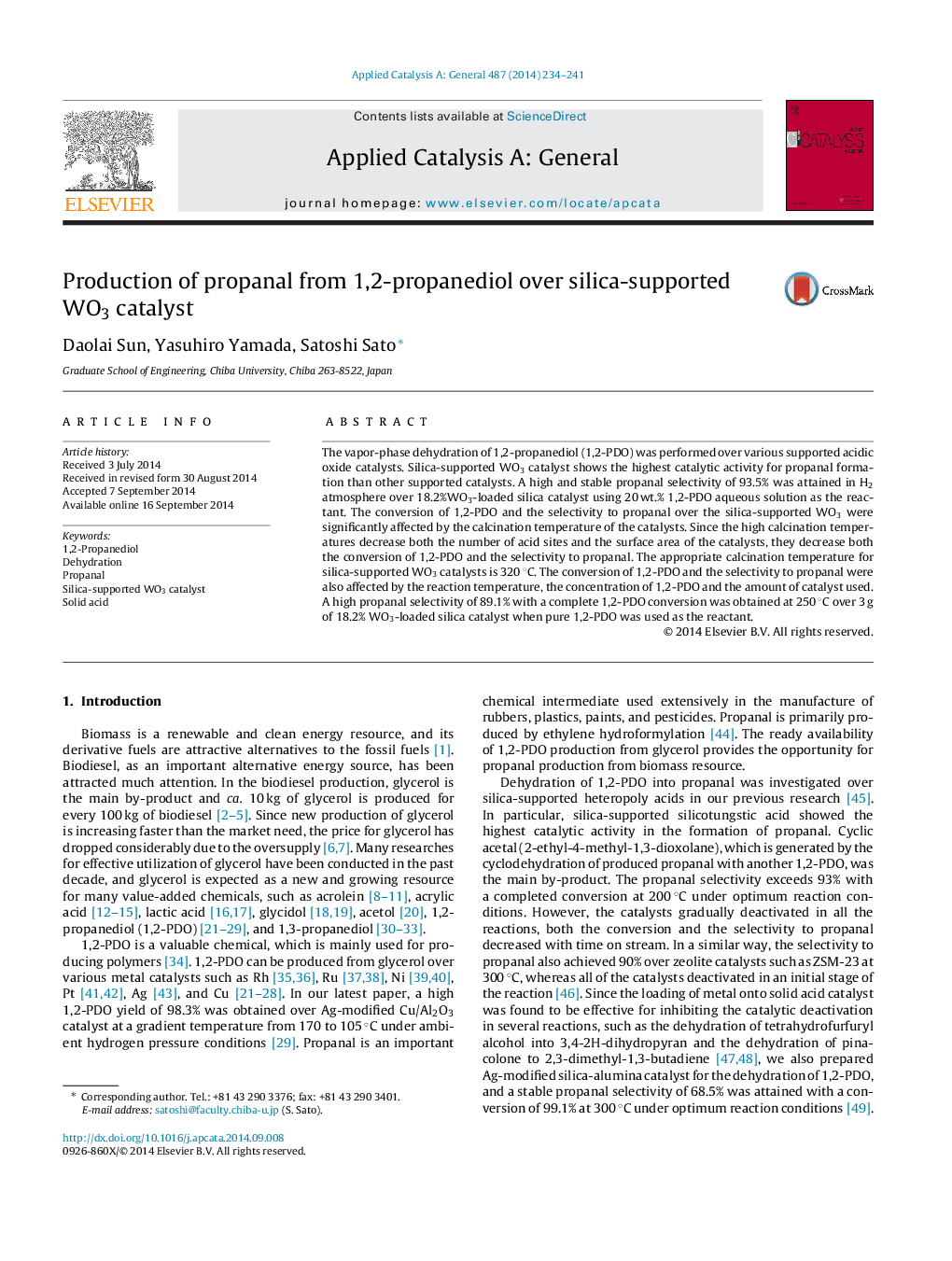| Article ID | Journal | Published Year | Pages | File Type |
|---|---|---|---|---|
| 39483 | Applied Catalysis A: General | 2014 | 8 Pages |
•Dehydration of 1,2-propanediol into propanal was investigated.•A new acidic SiO2-supported WO3 catalyst was developed.•The acidity and the catalytic activity depend on the calcination temperature of catalyst.•Stable catalytic activity was observed over SiO2-supported WO3 catalyst.•The highest selectivity to propanal was attained at 93% at 250 °C.
The vapor-phase dehydration of 1,2-propanediol (1,2-PDO) was performed over various supported acidic oxide catalysts. Silica-supported WO3 catalyst shows the highest catalytic activity for propanal formation than other supported catalysts. A high and stable propanal selectivity of 93.5% was attained in H2 atmosphere over 18.2%WO3-loaded silica catalyst using 20 wt.% 1,2-PDO aqueous solution as the reactant. The conversion of 1,2-PDO and the selectivity to propanal over the silica-supported WO3 were significantly affected by the calcination temperature of the catalysts. Since the high calcination temperatures decrease both the number of acid sites and the surface area of the catalysts, they decrease both the conversion of 1,2-PDO and the selectivity to propanal. The appropriate calcination temperature for silica-supported WO3 catalysts is 320 °C. The conversion of 1,2-PDO and the selectivity to propanal were also affected by the reaction temperature, the concentration of 1,2-PDO and the amount of catalyst used. A high propanal selectivity of 89.1% with a complete 1,2-PDO conversion was obtained at 250 °C over 3 g of 18.2% WO3-loaded silica catalyst when pure 1,2-PDO was used as the reactant.
Graphical abstractFigure optionsDownload full-size imageDownload high-quality image (142 K)Download as PowerPoint slide
